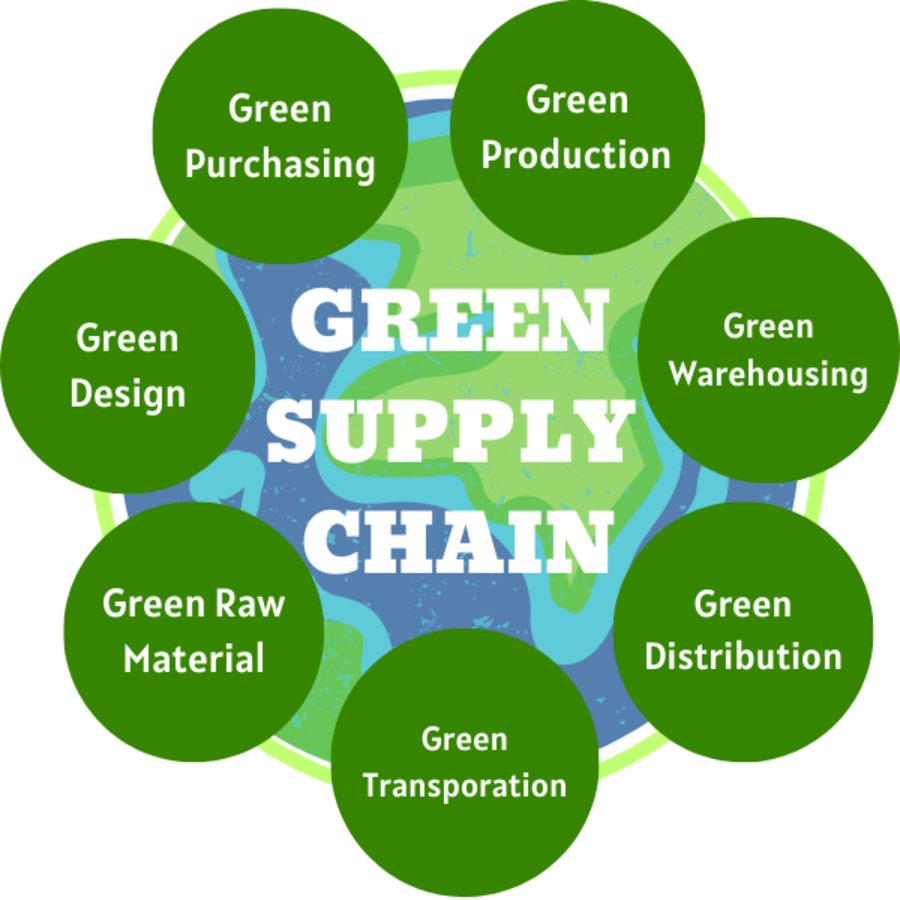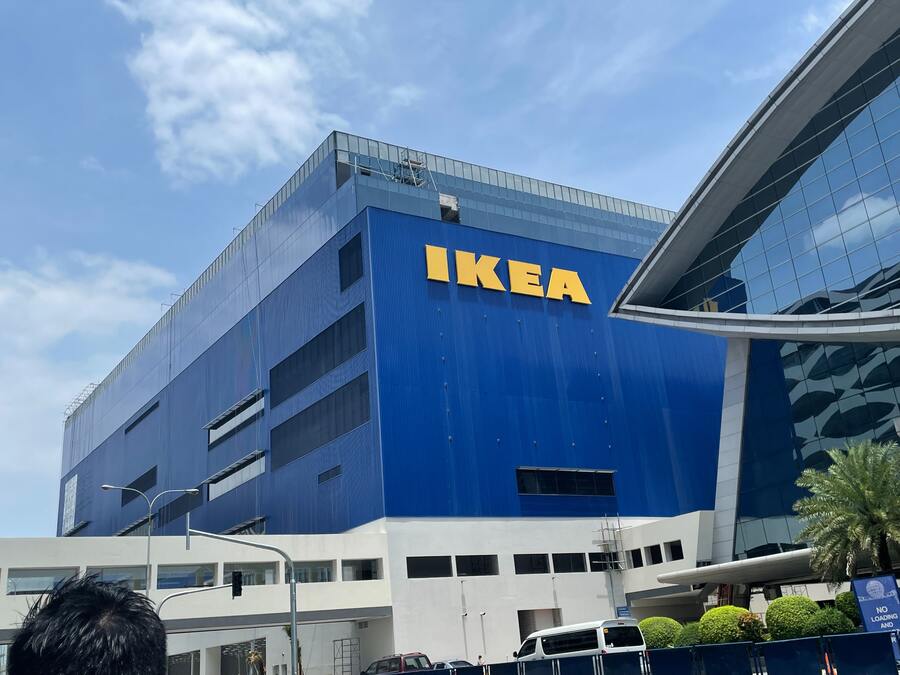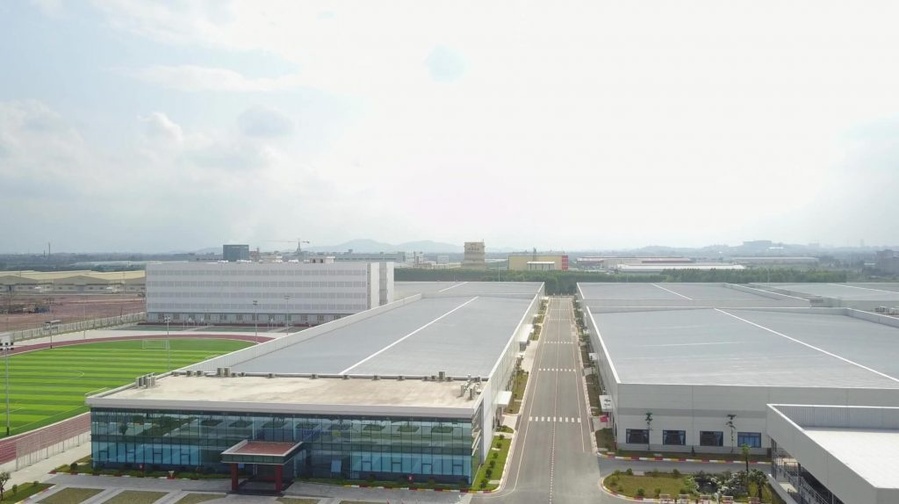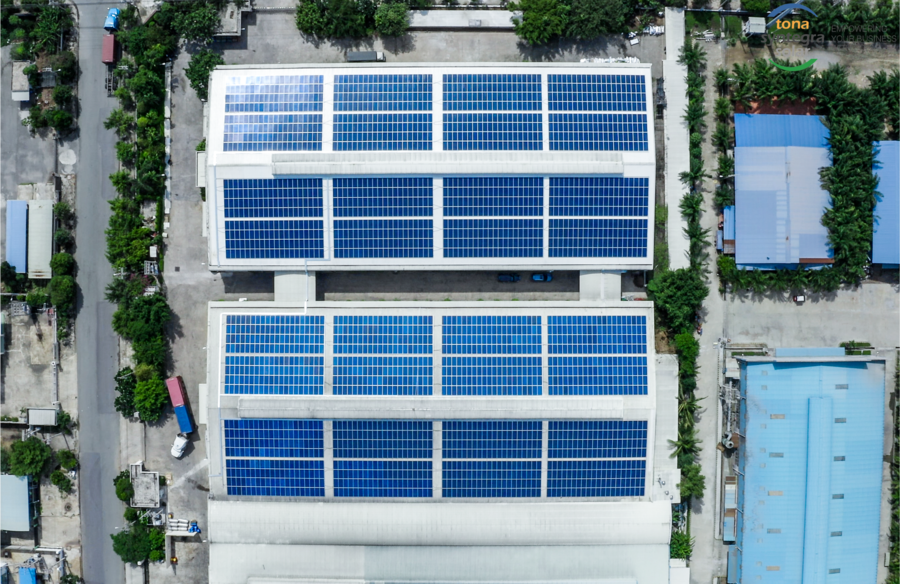
The green supply chain is considered a trend in the production activities of businesses aiming towards achieving “Net Zero Emissions” by 2050. Installing solar energy systems is the optimal choice for many companies to bring economic and environmental benefits to their production plants. Tona Syntegra Solar provides solutions for rooftop solar energy systems for various needs in industries, commerce, and agriculture areas.
The green supply chain is a supply chain management system designed to minimize the impact of business operations on the environment and enhance sustainability in production and business activities. The green supply chain includes activities from ordering, production, transportation, storage, and management to product recycling. All these activities are carried out with the aim of maximizing energy savings, reducing pollution, and optimizing the use of resources.
In simple terms, the green supply chain is an efficient supply chain that still maintains environmental friendliness and uses natural ecosystem resources effectively.
Green supply chain management is closely linked to the management of its links, including green design, green operation, which includes green procurement, input and output logistics, reverse logistics, waste management, and green manufacturing.

Green supply chains are a supply chain management system that focuses on reducing negative impacts on the environment and the community. The impacts of green supply chains on the economic, environmental, and social aspects can be described as follows:
Environmental impacts: A green supply chain focuses on reducing negative impacts on the environment by minimizing waste, reducing pollution, and easing pressure on the natural environment.
Economic impacts: Implementing a green supply chaincan improve production processes, reduce raw material costs, create a competitive advantage, increase flexibility, and enhance partnerships with stakeholders.
Social impacts: A green supply chain can help protect human health, reduce negative impacts from industrial waste, decrease negative impacts on communities, and demonstrate social responsibility of each business.
Greening the supply chain is becoming increasingly popular in factories to ensure that their production is carried out sustainably and does not have negative impacts on the environment and the community.
Using environmentally friendly materials: Factories are exploring ways to use environmentally friendly materials, such as recycled plastic or plant-based plastic, to reduce waste.
Using renewable energy sources: Factories are transitioning to using renewable energy sources such as wind, solar, and hydropower to reduce carbon emissions.
Optimizing transportation and storage: Factories are using green transportation and optimizing transportation processes to reduce carbon emissions, as well as optimizing storage to reduce waste.
Collaborating with supply chain partners: Factories are collaborating with supply chain partners to optimize production processes and operations to reduce carbon emissions and optimize resource use.
Enhancing brand reputation: When companies implement green supply chains, they are often perceived as having higher brand reputation and credibility in the eyes of customers, investors, and the community. In addition, they create jobs and enhance sustainable development in the community, particularly in areas with labor demands.
Respecting the environment: By implementing green supply chains, businesses demonstrate their respect for the environment and social responsibility. Products produced from green supply chains often have higher quality, safety, and environmental standards. Furthermore, businesses implementing green supply chains gain a competitive advantage over competitors who do not implement green supply chains in their production operations.
IKEA is a well-known multinational corporation from Sweden specializing in designing assemble-it-yourself furniture and home appliances. IKEA is committed to ensuring that the process of providing products and services increasingly meets all criteria for quality, price, and “greenness” for customers. IKEA mainly uses raw materials such as wood, wool, cotton, and glass in the production process to ensure the environmental protection goal of the green supply chain. IKEA has come up with solutions to reduce emissions during transportation: optimizing the ordering process and packaging process to increase shipping volume while reducing the number of shipments. The company strengthens its cooperation with rail and sea transport companies that have modern, fuel-efficient vehicles to minimize CO2 emissions into the environment.

Apple Inc., a technology conglomerate, is known for being one of the leading companies in implementing and managing green supply chains and utilizing renewable energy in business operations in the United States. Throughout the product lifecycle, recycling is the norm, with recycled input materials being sourced from around the world. After the product is completed, it is shipped to Apple stores or retail partners. During the product usage stage, all information is processed by Apple’s data servers running on 100% renewable energy sources such as wind and solar power. At the end of the product’s lifecycle, customers can send back their Apple products for safe recycling. This is Apple’s reverse logistics process aimed at maintaining product sustainability.

In addition to the activities of a green supply chain, manufacturing plants should also prioritize long-term methods in the process of greening the supply chain. Installing solar energy systems for factories is one of the ways that not only provides environmental benefits, but also high economic efficiency and long-term use.
Tona Syntegra Solar (TSS) is proud to be one of the EPC contractors in the field of installing rooftop solar energy systems. The installed capacity of solar power in Vietnam has reached nearly 60 MWp – reducing over 30,000 tons of CO2 emissions into the environment every year. TSS always prioritizes ensuring construction quality for the project so that the system can operate stably, long-term and with high efficiency. During the construction process, labor safety and HSE (Health, Safety and Environment) are always our special focus and we ensure strict compliance.
See more: Tona Syntegra Solar’s featured projects.

A green supply chain can help reduce negative impacts on the environment and the community, while also creating economic benefits by enhancing the credibility and image of the brand, generating employment, and promoting sustainable development. Installing solar energy systems at factories and production sites is seen as a breakthrough step for businesses in the process of “greening” their supply chains.
Source: Ministry of Industry and Trade – Adapting green supply chains to the post-Covid-19 context.